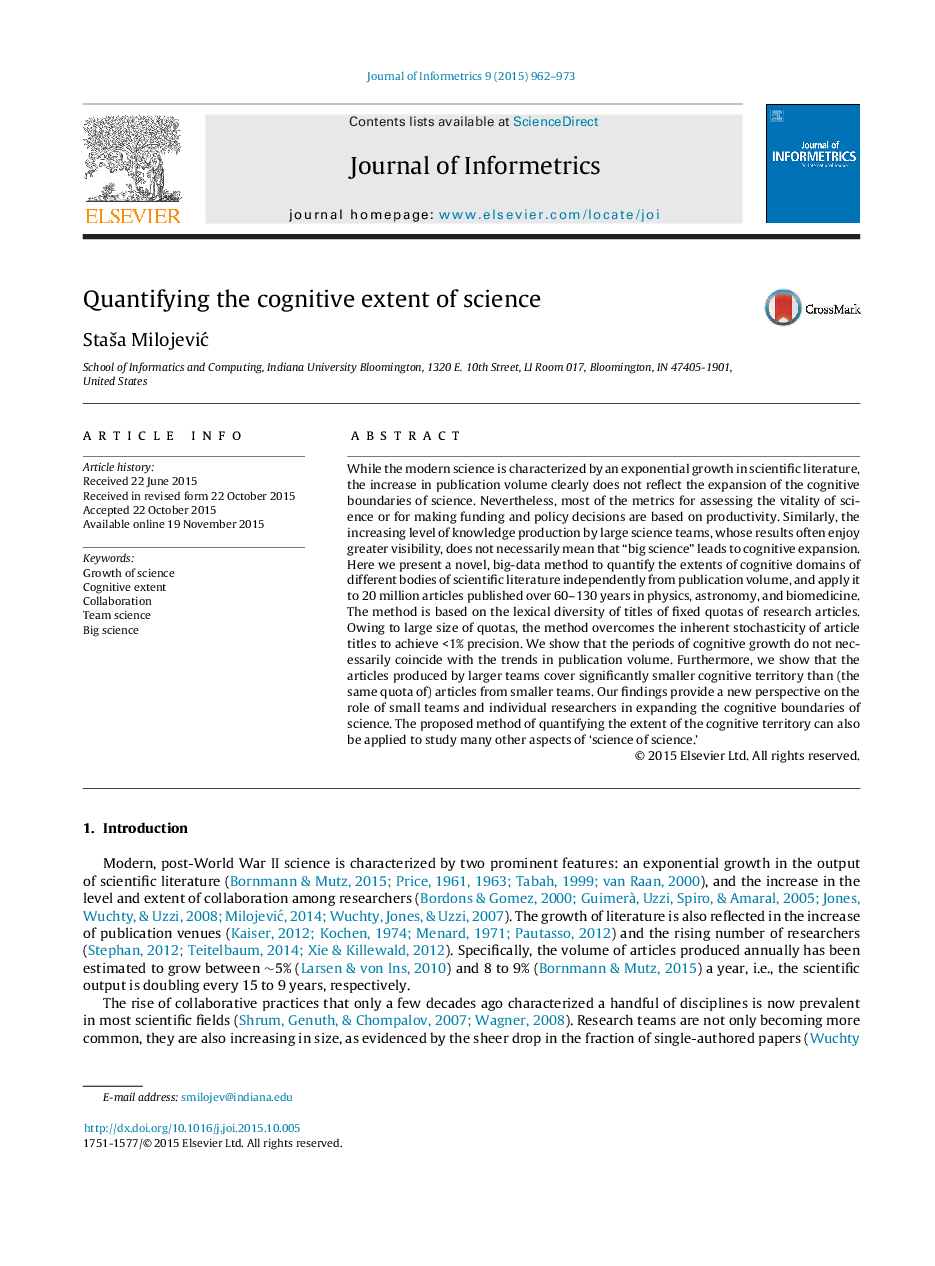| Article ID | Journal | Published Year | Pages | File Type |
|---|---|---|---|---|
| 523095 | Journal of Informetrics | 2015 | 12 Pages |
•We present a big-data method to quantify the cognitive extent of scientific literature.•This new metric of science is entirely independent from publication volumes.•The cognitive extent in physics and astronomy has been expanding rapidly since 1960s.•Small research teams cover greater cognitive extent than large teams in fields studied.
While the modern science is characterized by an exponential growth in scientific literature, the increase in publication volume clearly does not reflect the expansion of the cognitive boundaries of science. Nevertheless, most of the metrics for assessing the vitality of science or for making funding and policy decisions are based on productivity. Similarly, the increasing level of knowledge production by large science teams, whose results often enjoy greater visibility, does not necessarily mean that “big science” leads to cognitive expansion. Here we present a novel, big-data method to quantify the extents of cognitive domains of different bodies of scientific literature independently from publication volume, and apply it to 20 million articles published over 60–130 years in physics, astronomy, and biomedicine. The method is based on the lexical diversity of titles of fixed quotas of research articles. Owing to large size of quotas, the method overcomes the inherent stochasticity of article titles to achieve <1% precision. We show that the periods of cognitive growth do not necessarily coincide with the trends in publication volume. Furthermore, we show that the articles produced by larger teams cover significantly smaller cognitive territory than (the same quota of) articles from smaller teams. Our findings provide a new perspective on the role of small teams and individual researchers in expanding the cognitive boundaries of science. The proposed method of quantifying the extent of the cognitive territory can also be applied to study many other aspects of ‘science of science.’
